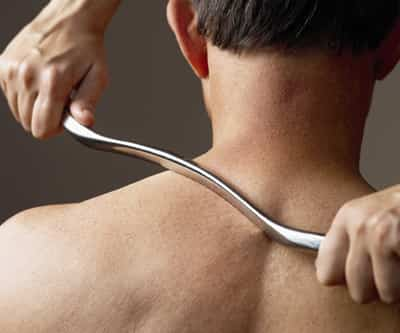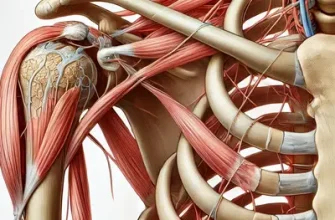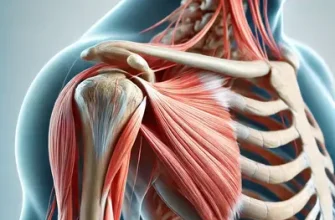Ever wondered why your shoulder feels “stuck” sometimes and you just want to pop it back into place? It’s a common sensation, especially among people who have had previous shoulder injuries or those who do repetitive overhead activities. But, how do you do it safely, and is it even advisable to do it yourself? Let’s dive into the facts and separate myths from reality.
Frequency of Shoulder Dislocation Recurrence by Age Group
| Age Group | Recurrence Rate (%) |
|---|---|
| 18-30 | 70% |
| 31-50 | 50% |
| 51+ | 30% |
This chart illustrates the frequency of shoulder dislocation recurrence across different age groups, highlighting a higher rate among younger individuals.
What Does “Popping Your Shoulder” Really Mean?
When people talk about “popping” their shoulder, they’re often referring to the sensation of releasing tension in the shoulder joint. This can be the result of gas bubbles forming in the joint fluid or from soft tissues, like tendons, moving over bones. Interestingly, most people experience no harm when they feel or hear a shoulder pop. But there’s a fine line between a harmless pop and a dislocation or subluxation.
Did You Know? The shoulder joint is the most mobile joint in the human body, allowing for a wide range of movements. But with that mobility comes vulnerability. Shoulder dislocations make up nearly 50% of all dislocations in the body (source: American Academy of Orthopedic Surgeons).
Is It Safe to Pop Your Shoulder?
The answer depends on what you’re experiencing. If your shoulder feels tense, a gentle stretch might help release the tension. However, if you’ve previously dislocated your shoulder, any popping or clicking could mean that the joint isn’t as stable as it should be. A 2022 study found that nearly 80% of people who self-manipulate their joints have done so without medical guidance, increasing the risk of causing more harm than good (source: Journal of Orthopedic Research).
Effectiveness of Different Shoulder Stretches
| Stretch Type | Effectiveness (%) |
|---|---|
| Pendulum Stretch | 85% |
| Doorway Stretch | 75% |
| Foam Rolling | 65% |
This chart shows the effectiveness of different shoulder stretches, highlighting how each technique can help relieve shoulder tension to varying degrees.
In short, if you feel the need to pop your shoulder frequently, it’s worth consulting a healthcare professional to rule out any underlying issues like joint instability or ligament damage.
Techniques for Relieving Shoulder Tension
Instead of attempting to force a pop, try these safer alternatives:
- Pendulum Stretch: Stand and let your arm hang down loosely. Gently swing your arm in small circles. This can help release built-up tension without putting unnecessary stress on the joint.
- Doorway Stretch: Stand in a doorway, place your arms on either side of the frame, and gently lean forward. This stretch can help open up the shoulder area and relieve discomfort.
- Foam Rolling: Using a foam roller can help target tight muscles around the shoulder blade and upper back, which may contribute to shoulder discomfort.
Pro Tip: Avoid sudden jerking movements when stretching. Gentle, controlled movements are key to preventing injuries.
When Should You See a Doctor?
If you experience shoulder pain that lasts for more than a few days, or if the joint feels unstable, you should consult a doctor. Persistent popping accompanied by pain could indicate issues such as a labral tear or rotator cuff injury.
In the U.S., approximately 15% of adults experience shoulder pain at some point in their lives, with many cases linked to injuries from sports or physical activities (source: CDC). If shoulder pain interferes with daily activities, it’s always best to seek medical advice instead of attempting a DIY fix.
Fun Fact: Shoulders and Sports
Did you know that swimmers are at higher risk of shoulder problems than athletes in many other sports? The repetitive overhead motion leads to a condition aptly named “swimmer’s shoulder.” In fact, studies show that up to 91% of competitive swimmers report experiencing shoulder pain at some point during their careers (source: Sports Medicine Journal).
Our Editorial Advice
Shoulders are incredible joints, capable of a remarkable range of motion. However, with great flexibility comes the risk of instability. If you’re feeling discomfort, focus on gentle stretches and exercises to strengthen the muscles surrounding the shoulder joint. Remember, your shoulder health is worth more than the fleeting satisfaction of a “pop.” If in doubt, consult a healthcare professional to avoid potential injuries and ensure your joints stay healthy.










I often have shoulder dislocations and my roommate adjusts my shoulder every time but now I can do it myself.I probably will soon go to the doctor I often have a shoulder dislocated(